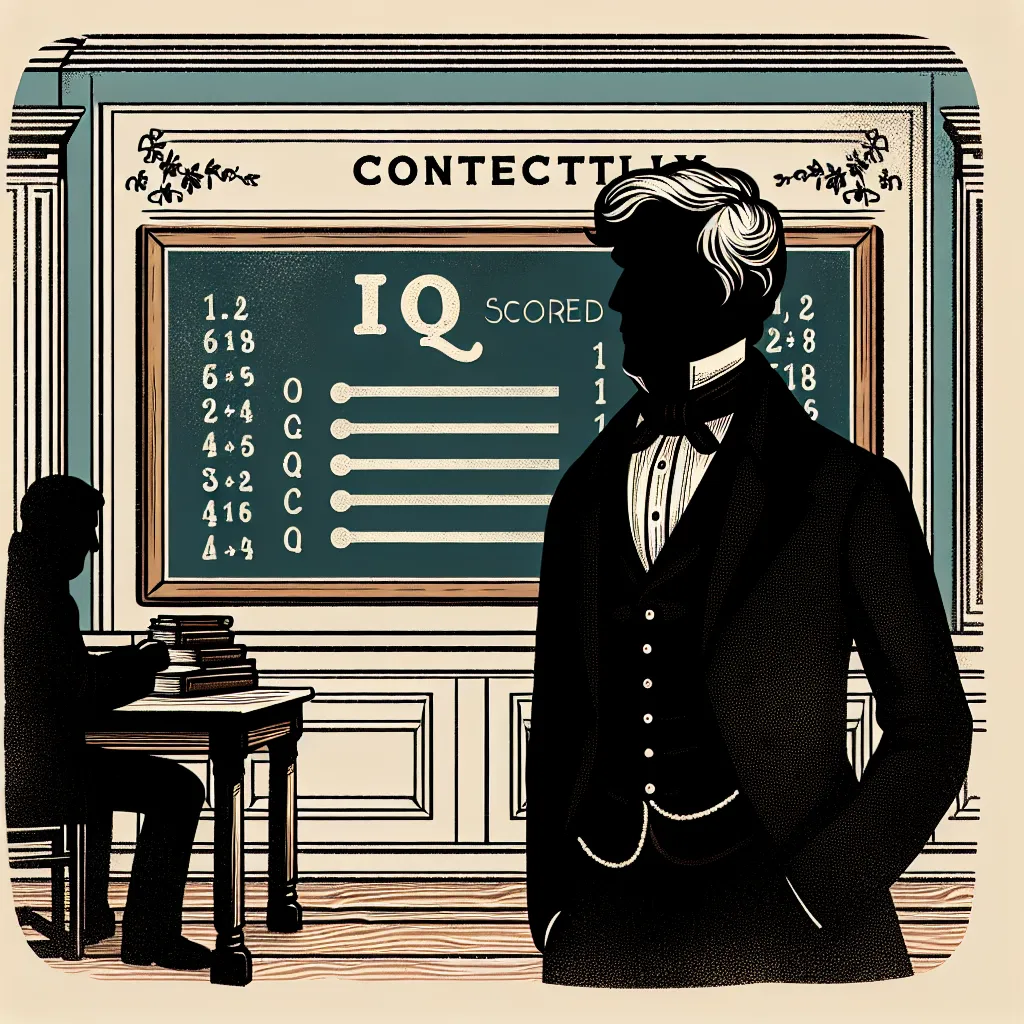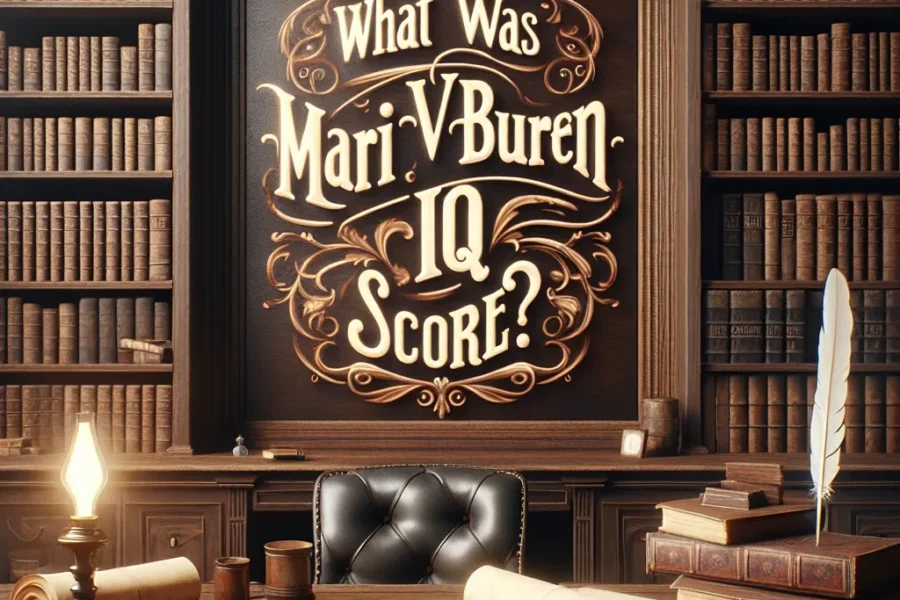The quest to understand the intelligence of historical figures often leads us down a fascinating but ultimately speculative path. One such figure who has garnered much interest is Andrew Jackson, the seventh President of the United States. Born on March 15, 1767, in the Waxhaws region near the border between North and South Carolina, Jackson led a life marked by resilience, conflict, and transformative leadership. However, we delve here into an intriguing but ultimately speculative question: What was Andrew Jackson’s IQ score?
If you are looking for legitimate IQ Tests which pass the entry bar for Mensa, see our IQ Tests.
Understanding IQ scores and their relevance requires a nuanced approach. The modern concept of IQ (Intelligence Quotient) did not exist in Andrew Jackson’s time. The first intelligence tests were developed in the early 20th century by psychologists like Alfred Binet and Lewis Terman. Therefore, any attempt to assign an IQ score to Jackson or any other historical figure must be undertaken with caution. It involves hypothesizing based on their achievements, decision-making, and the historical records available about their lives.
Andrew Jackson’s life offers a varied tapestry from which one might attempt to deduce his intellectual capabilities. Jackson’s early life was fraught with hardships. Orphaned by the age of 14, he was left to make his own way in a tumultuous world. Despite these challenges, Jackson became a self-taught lawyer, gaining admission to the bar in 1787. His career as a lawyer and subsequently as a military leader and politician can be pieced together to form an impression of his intellectual capabilities.
As a lawyer, Jackson demonstrated an ability to learn complex material and argue effectively in court, skills that suggest above-average cognitive abilities. His rise through the ranks, from lawyer to congressman, senator, and eventually president, required astute social intelligence and strategic thinking. However, intelligence is multifaceted and can’t be entirely captured through accomplishments alone.
Jackson’s military career, particularly his role in the Battle of New Orleans during the War of 1812, cemented his reputation as a formidable leader. His ability to rally and lead men despite overwhelming odds suggests a high degree of problem-solving ability, situational awareness, and decisiveness. These attributes correspond to various aspects of cognitive intelligence, such as analytical reasoning and strategic planning.
Jackson’s tenure as president was characterized by a forceful and sometimes controversial leadership style. He is perhaps best known for his role in the Indian Removal Act, his opposition to the National Bank, and his actions during the Nullification Crisis. These policies and their implementation reflect a mix of cognitive and emotional intelligence, as well as moral ambiguity. Critics argue that his decisions were often driven by a stubborn and uncompromising nature, while supporters contend that his strong-willed approach was necessary to shape the young nation.
Exploring Jackson’s intellectual landscape also involves examining his interpersonal intelligence. His ability to connect with and inspire his supporters, often referred to as the “common man,” indicates a high level of social awareness and emotional intelligence. Jackson’s capacity to read and respond to public sentiment is a key factor in political success and suggests that he possessed a nuanced understanding of human behavior.
In modern contexts, IQ scores typically range from 85 to 115 for about two-thirds of the population, with scores above 130 considered highly intelligent or “gifted.” While it is impossible to assign a concrete IQ score to Andrew Jackson, it is conceivable that his combination of strategic thinking, social intelligence, and pragmatic problem-solving abilities would indicate a high level of intelligence by these standards.
Moreover, the societal context of Jackson’s time emphasizes different facets of intelligence compared to today’s standards. The 19th century valued leadership, resilience, and a pioneering spirit perhaps more than abstract analytical skills measured by IQ tests today. Jackson’s success and the complexities of his presidency reflect a type of intelligence that includes but transcends cognitive ability alone.
When hypothesizing about Jackson’s intelligence, it is essential to consider his education—or lack thereof. Unlike many of his contemporaries, Jackson did not attend a prestigious institution, yet he successfully navigated the complexities of law, politics, and military strategy. This autodidactic journey suggests a high degree of self-motivation and learning agility, traits often associated with intelligent individuals.
One can argue that Jackson’s intelligence might also be measured by his adaptability. He was a man who rose from the frontier of the Carolinas to the highest office in the land, adapting to changing environments and societal expectations along the way. This adaptability is a critical component of practical intelligence, which allows one to navigate life’s challenges effectively.
On the other hand, intelligence is also about reflection and judgment, areas where Jackson’s record is more contentious. His aggressive policies toward Native Americans and his role in the Indian Removal Act, which led to the Trail of Tears, remain a dark chapter in American history. These actions reflect a complex interplay of intelligence, morality, and societal norms of the time.
In reviewing Jackson’s legacy, one might also consider his intellectual curiosity. Despite his lack of formal education, he displayed a lifelong commitment to learning and development. Jackson maintained a substantial library and engaged in extensive reading, often focusing on history and political theory. This desire for self-improvement and knowledge is a hallmark of intelligent individuals.
From an emotional intelligence perspective, Jackson was a paradox. While he demonstrated formidable interpersonal skills that endeared him to many, his reactions to criticism were often vehement and unfiltered. His famous temper and frequent duels suggest a volatile emotional landscape. Balancing these temperamental traits with his leadership capabilities presents a multidimensional view of his intelligence.
In conclusion, while it is impossible to assign a numerical IQ score to Andrew Jackson, historical records provide a comprehensive view of his cognitive and emotional capacities. His leadership abilities, self-taught knowledge, legal acumen, strategic military mind, and political astuteness indicate a high level of intelligence. However, his emotional volatility and often morally questionable decisions complicate this assessment. Jackson’s intelligence, like that of many historical figures, defies simple categorization and touches upon the broad and complex nature of human intellect and character.



Leave a Comment